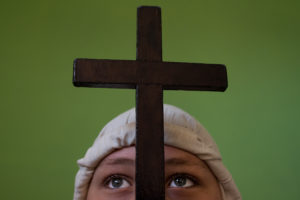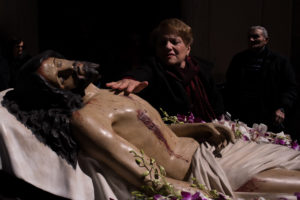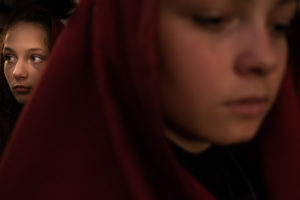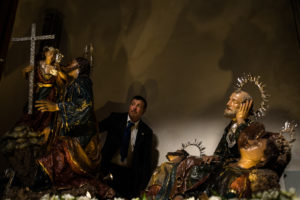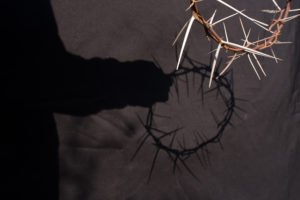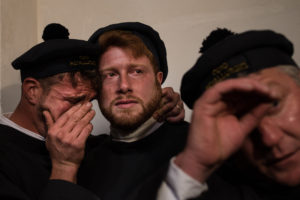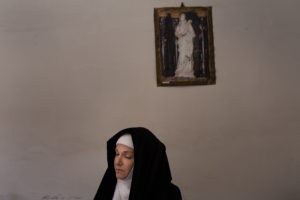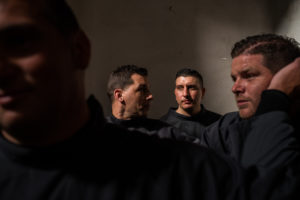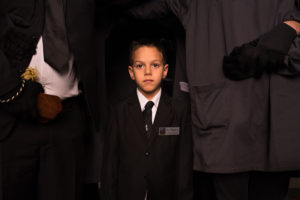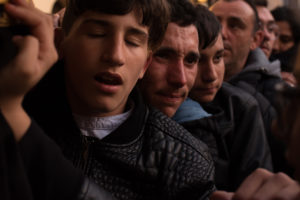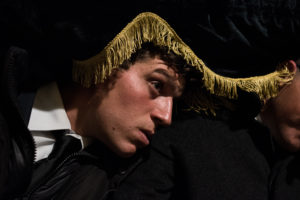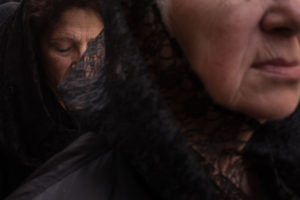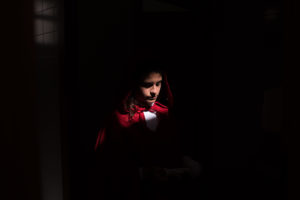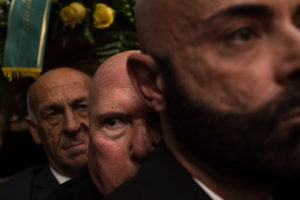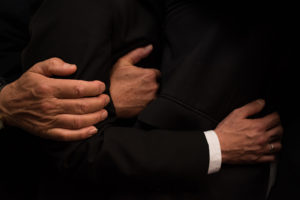A COLLECTIVE UNCONSCIOUSNESS
During the Sicilian Holy Week, which celebrates the Passion and the Death of Christ, the most heartfelt Easter rituals take place in the town of Trapani and its surroundings in the western part of the island. The Catholic traditions date back to the 16th Century when Sicily was under Spanish rule.
Men, women and children often find themselves side by side and the same tacit feeling and a sense of belonging unite them. They discover again the roots of their past and their religiousness. In fact, if the so-called ‘Mysteries’ have a deep fascination for tourists, the effect on the local people is still more intense and arcane as if sounds, smells and colours have been indelibly imprinted on their subconscious.
Permeated by a timeless religious tension, the ‘Misteri’ processions are much more than a tradition and a cultural heritage. They bring together the town and its citizens. They represent a microcosm of the human condition in which the eternal search for the divine has been handed down, from parents to their children, for over four centuries.
The past and the present merge on the streets of today’s Sicily, human tears echo the tears of wax from the candles and the solemn music of the funeral marches sticks in your mind, while those in the procession whisper their prayers. This arcane ceremony exalts life celebrating death.
ARCHETIPI DELLA MEMORIA
Nella Settimana Santa siciliana, che celebra la Passione e Morte di Gesù, si svolgono a Trapani e dintorni, i più sentiti riti pasquali. Essi traggono le proprie origini dalla tradizione cattolica cinquecentesca e dall’influsso della dominazione spagnola in Sicilia.
Uomini, donne e bambini si ritrovano affiancati, accomunati dal medesimo tacito sentimento e dal medesimo senso di appartenenza, per riscoprire le radici del proprio passato e della propria religiosità. Infatti, se forte è il fascino che i Misteri, così come vengono definiti, esercitano su quanti vi assistano, ancora più morbosa è la suggestione che operano sui trapanesi, quasi che suoni, odori e colori siano stati indelebilmente impressi negli archetipi della memoria.
Permeati da una tensione religiosa solenne senza tempo, i Misteri, sono molto più di una tradizione: sono un elemento integrante della città stessa e dell’esserne cittadini. Rappresentano un microcosmo della condizione umana caratterizzato dall’eterna ricerca del divino che viene tramandata di padre in figlio da oltre quattro secoli.
Il passato e il presente si fondono per le strade della Sicilia contemporanea così come le lacrime si mescolano alle gocce di cera delle candele, al ritmo straziante delle marce funebri e al sussurrare delle preghiere, perpetrando quel rito arcano che celebrando la morte, esalta la vita.

